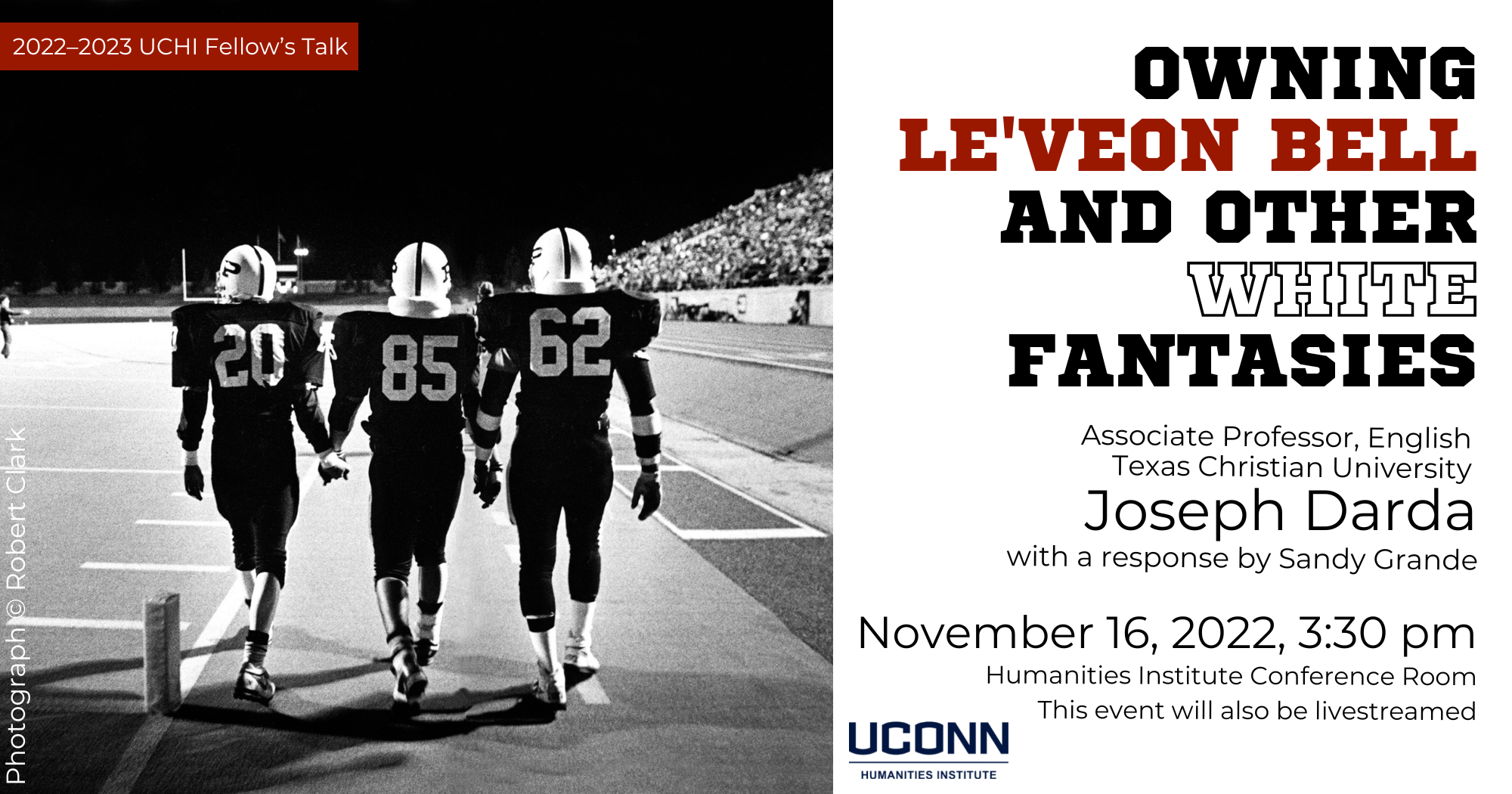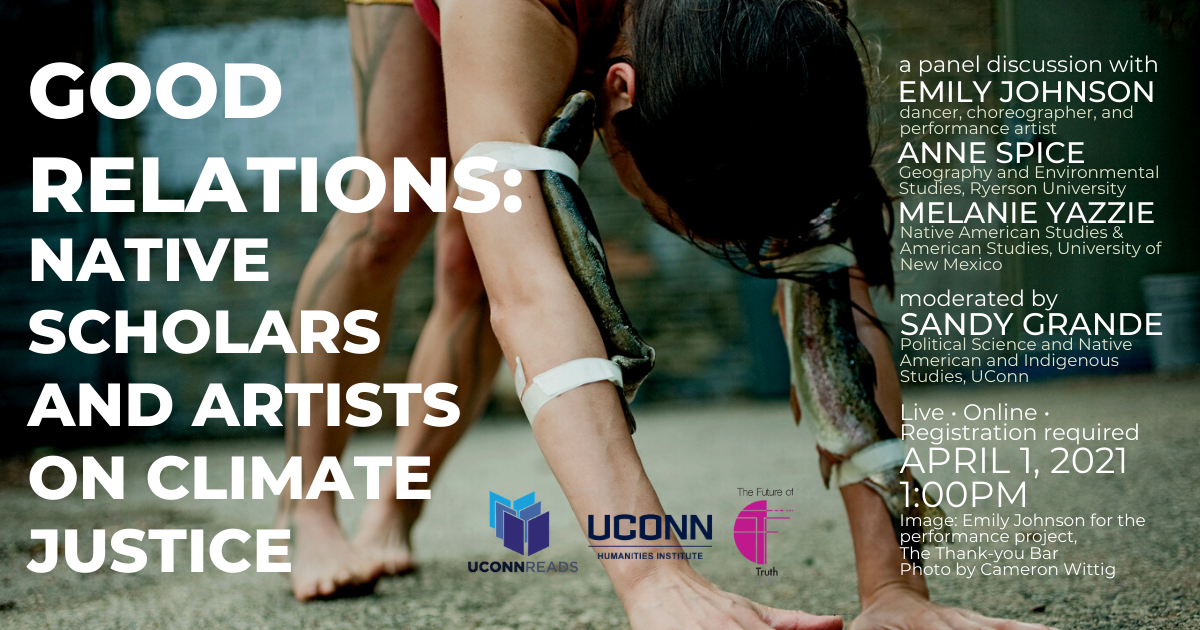Owning Le’Veon Bell and Other White Fantasies
Joseph Darda (Associate Professor, English and Comparative Race & Ethnic Studies, Texas Christian University)
with a response by Sandy Grande (Political Science and Native American & Indigenous Studies, UConn)
Wednesday, November 16, 2022, 3:30pm, Humanities Institute Conference Room (HBL 4-209)
Add to Google calendar Add to Office 365 calendar Add to other calendar
The event will also be livestreamed with automated captioning.
This talk situates the rise of fantasy sports––a now $20 billion industry––in a post–civil rights, post-feminist moment of retrenchment. Telling the stories of boardgame inventors, early fantasy leagues, moneyball statheads, billion-dollar gambling startups, and the fans who consume it all, Joseph Darda asks whose fantasy we are living when we draft, trade, and cut real-life professional athletes. While some celebrate the rise of fantasy sports and sports analytics as a “revenge of the nerds,” in which unathletic math whizzes stormed the gates of a world dominated by former prom kings, Darda shows how it has functioned as something else: a racial managerial fantasy, a fantasy inviting an audience of mostly white men to imagine themselves not as their favorite athletes but as owners of predominantly Black teams.
Joseph Darda is an associate professor of literature at Texas Christian University and the author of three books on the cultural life of race in the United States: The Strange Career of Racial Liberalism (Stanford, 2022), How White Men Won the Culture Wars (California, 2021), and Empire of Defense (Chicago, 2019). He has published articles in American Literary History, American Literature, American Quarterly, and Critical Inquiry, among other journals, and contributed essays to the Los Angeles Review of Books. With the historian Amira Rose Davis, he is coediting a forthcoming special issue of American Quarterly titled “The Body Issue: Sports and the Politics of Embodiment.”
At UCHI, Darda is writing “The Sporting Public: Race, Labor, and the Miseducation of the Fan,” a book investigating what our most popular culture, sports, an industry premised on the sorting and hierarchizing of bodies, has taught the nation about race, gender, and labor since civil rights.
This is his third tour in Storrs. He attended fourth grade at Goodwin Elementary and earned his Ph.D. from the University of Connecticut in 2015.
Sandy Grande is a Professor of Political Science and Native American and Indigenous Studies at the University of Connecticut with affiliations in American Studies, Philosophy, and the Race, Ethnicity and Politics program. Her research and teaching interfaces Native American and Indigenous Studies with critical theory toward the development of more nuanced analyses of the colonial present. She was recently awarded the Ford Foundation, Senior Fellowship (2019–2020) for a project on Indigenous Elders and aging. Her book, Red Pedagogy: Native American Social and Political Thought was published in a 10th anniversary edition and a Portuguese translation is anticipated to be published in Brazil in 2022. She has also published numerous book chapters and articles including: Accumulation of the Primitive: The Limits of Liberalism and the Politics of Occupy Wall Street, The Journal of Settler Colonial Studies; Refusing the University in Toward What Justice?; “American Indian Geographies of Identity and Power,” Harvard Educational Review; and, “Red-ding the Word and the World” In, Paulo Freire’s Intellectual Roots: Toward Historicity in Praxis. She is also a founding member of New York Stands for Standing Rock, a group of scholars and activists that forwards the aims of Native American and Indigenous sovereignty and resurgence. As one of their projects, they published the Standing Rock Syllabus. In addition to her academic and organizing work, she has provided eldercare for her parents for over ten years and remains the primary caregiver for her 94-yr. old father.
Access note
If you require accommodation to attend this event, please contact us at uchi@uconn.edu or by phone (860) 486-9057. We can request ASL interpretation, computer-assisted real time transcription, and other accommodations offered by the Center for Students with Disabilities.



